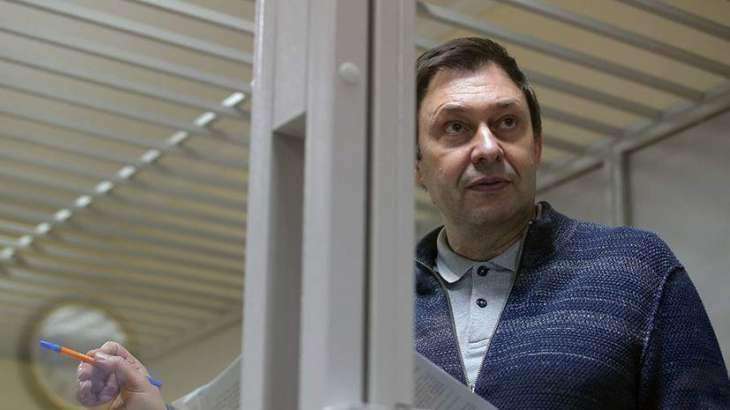The complaint of RIA Novosti Ukraine portal head Kirill Vyshinsky's defense about the illegality of his arrest was referred to the joint cassation chamber of the Supreme Court of Ukraine, his lawyer Andriy Domansky told Sputnik on Wednesday
MOSCOW (Pakistan Point News / Sputnik - 20th March, 2019) The complaint of RIA Novosti Ukraine portal head Kirill Vyshinsky's defense about the illegality of his arrest was referred to the joint cassation chamber of the Supreme Court of Ukraine, his lawyer Andriy Domansky told Sputnik on Wednesday."The cassation criminal court of the Supreme Court referred the appeal on the illegality of his arrest in May 2018 to the court's joint cassation chamber," Domansky said.
There is no information yet when the next court session might take place, he added.
Vyshinsky was detained in Kiev on May 15 on suspicion of supporting the breakaway republics in eastern Ukraine and treason. The journalist could face up to 15 years in prison with these charges. Earlier in March, the Kherson Appeals Court in Ukraine rejected an appeal by Vyshinsky's defense regarding the illegality of extending the journalist's arrest until April 8.
Russian President Vladimir Putin has said that Vyshinsky's arrest was politically motivated, adding that the incident demonstrated an unprecedented and unacceptable policy of Ukrainian authorities targeting journalists doing their jobs. The Russian Foreign Ministry has protested to Kiev, calling on the incumbent authorities to stop the crackdown on media.
Harlem Desir, the representative on freedom of the media at the Organization for Security and Co-operation in Europe (OSCE), has also expressed his concern over Ukraine's actions toward Vyshinsky and called for the journalist's release. Commenting on the situation, OSCE Secretary General Thomas Greminger has said that all OSCE member states should comply with international standards and avoid interfering in media's work.




